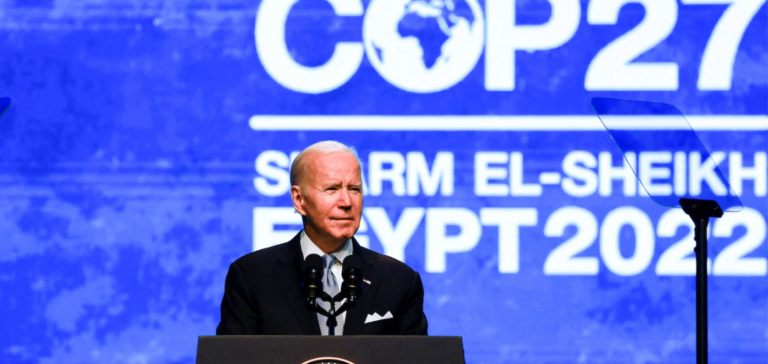Inflation Reduction Act (IRA) lowers global costs of decarbonization says Joe Biden at COP27. This law will, according to him, allow the cost of clean energy to be lowered on a global level.
An American vision
The $368 billion Inflation Reduction Act will support numerous investments in clean energy technologies. Among the means of action used, we note the extension and increase of tax credits for renewable energy. Subsidies for electric vehicles are also included in this text.
The IRA provides a strong incentive to increase clean hydrogen production. Thus, Joe Biden states:
“Our investments in technology, from electric batteries to hydrogen, will spark a cycle of innovation that will reduce the cost and improve the performance of technology and clean energy that will be available to nations around the world, not just the United States. We will help make the transition to a low-carbon future affordable for everyone.”
This could have an indirect influence on the global transition to zero carbon.
The U.S. President is banking on increased production and export capabilities through the IRA. Thus, the worldwide diffusion of cheap hydrogen could lead to a strong increase in demand. However, not all countries adhere to this vision.
Europe is skeptical
Indeed, spending under this law is concentrated exclusively within the United States. Developing nations, on the other hand, argue for loss and damage financing to their advantage. The European Union is also concerned about the potential trade impact of the IRA.
The Inflation Reduction Act makes the United States much more attractive than Europe for clean energy investments. The fear of a trade war between the United States and the European Union is arising among European leaders. In order to address the European Union’s concerns, an IRA task force is in place.
This committee held its first meeting in early November. However, it does not seem to be able to dispel fears of a trade war. Brussels expresses concern about discriminatory elements of the IRA.






















